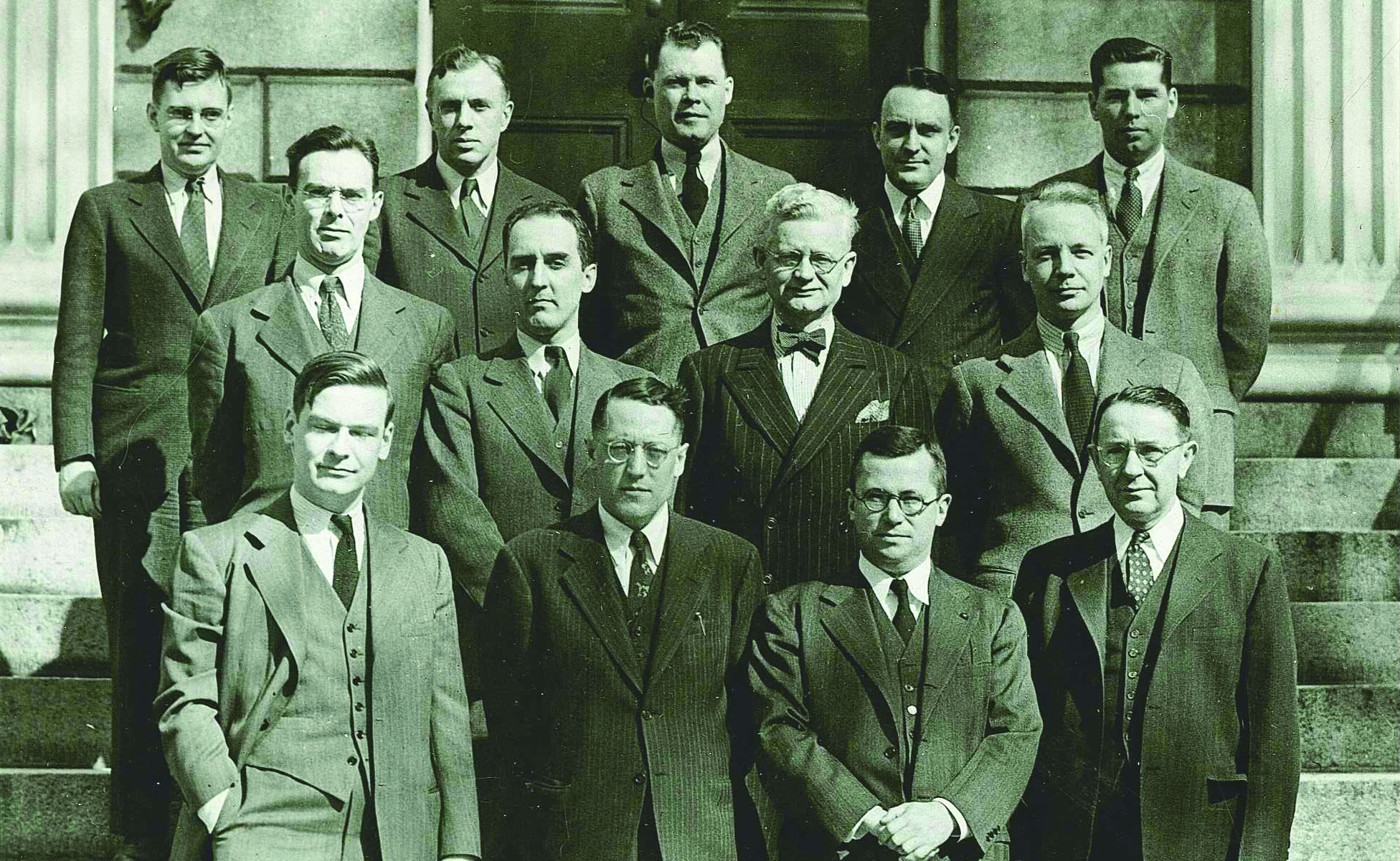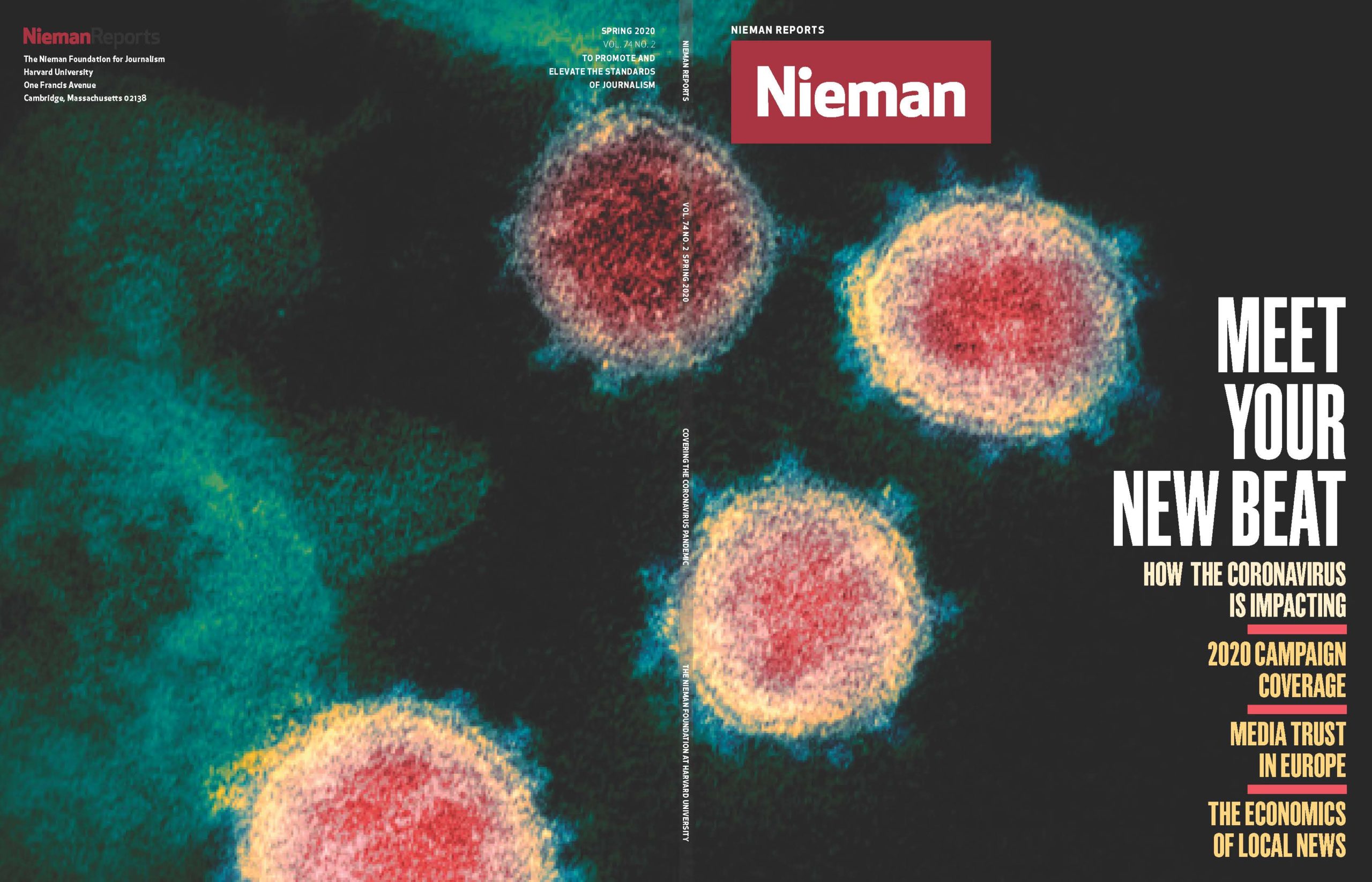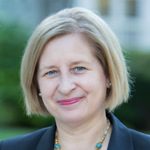
The Nieman Class of 1944. Former Nieman curator Louis Lyons considered suspending fellowships in the 1943-1944 academic year in response to World War II, but ultimately decided against it. Likewise, the 2020 Nieman Fellowship continued on — if in a different form — in the face of the coronavirus pandemic
Goenawan Mohamad, the Indonesian journalist and poet, had considerable impact on the members of my Nieman class. His parents had suffered exile to an internment camp; his father was later executed for political activism. Tempo, the magazine he founded, was denounced, shuttered, then banned by the Suharto government. Yet Goenawan was among the most stoic men any of us had ever met.
“Courage,” he would say, “is contagious.”
I have been thinking of Goenawan and our Nieman year conversations. As the sobering threat of Covid-19 emerged and Harvard closed its campus, I was asked if there was precedent for the disruption faced by the class of 2020. No; in the 82-year history of Nieman, there had never been a deadly pandemic that drove students, faculty, and staff into home lockdown. But as Nieman Fellows well know, there are colleagues in the world for whom hardship and disruption are commonplace. Goenawan and so many journalists, including members of the class of 2020, have endured regular retribution — political and physical — as personally threatening as this virus. We know their names because they persevered in the face of suffering, often returning home from their Nieman year to face continuing difficulty.
Some fellowships suspended their programs in the wake of March shelter-in-place orders. But that was not an option for Nieman, nor is it an option going forward. If anything, our founding mission — to “promote and elevate the standards of journalism and educate persons deemed especially qualified for journalism” — is more urgent. Not long after the pandemic hit, George Floyd, a Black man, was killed by a Minneapolis police officer, igniting national outcry and grief, along with a reckoning in newsrooms over who we hire and promote to tell the country’s stories. What would it say to the legions of journalists who experience hardship not as an interruption but as a condition of their work if we did not persist?
As we worked on defining what fellowship will mean this fall and considered other initiatives to expand Nieman’s impact, we were influenced by our earlier experimentation. First we disrupted the academic-year model by offering short-term Knight Nieman Fellowships for innovative projects. Then we added the Abrams Nieman Fellowships in local investigative journalism, extending the traditional model with an additional nine months of fieldwork. Those projects have given us new tools and confidence to meet rapidly-changing industry needs. As a result, we have fashioned a special visiting fellowship to focus on racial justice and public health. This initiative will both complement our academic year fellowship and support journalists who have innovative ideas for strengthening their newsrooms and communities in these crucial areas.
We are also encouraged by our experience in confronting the pandemic this spring. For two months, work that traditionally took place at Lippmann House was successfully translated online. As with Harvard’s spring semester classes, our seminars and the course in narrative nonfiction writing were held on Zoom. Fellows moved their Soundings online, braiding classic storytelling conventions with the technological innovations that kept us connected. Some workshops, like those in podcasting, data visualization, or photography, were harder to convert, but the ingenuity of fellows and staff overcame the challenges. The quick, forced transition to online learning was merely a start. Having been catapulted into a new world, what were the opportunities? We tested new initiatives, such as “Nieman to Nieman,” online sessions that united our global network of fellows for conversations with newsworthy alumni, programming we will continue no matter the path of the virus.
Fellows would have preferred their physical proximity and the easy access to the classrooms, libraries, museums, and more that make up the Harvard campus. Moreover, news of friends and colleagues who had fallen ill from the coronavirus — including the Harvard president and his wife — introduced worry that preoccupied many of us throughout the spring. But in these ways Nieman was not unique. Wherever you are as you read this, you have been impacted by the unforgiving virus.
The challenge for Nieman going forward is not a two-month reprogramming effort but a response that anticipates the galloping changes taking place in journalism. In mere weeks, everything from where you make your office to how we report the story of a lifetime while avoiding infection birthed more newsroom transformation than we had witnessed in years. Similarly, the debates about representation and inequity that are both roiling and inspiring journalism are compelling change from which we cannot retreat. Against the backdrop of the industry’s twin truths — a soaring reliance on news and fewer and fewer people paid to provide it — this is as consequential a challenge as journalism has confronted.
While we look forward to the day we again may gather a new fellowship class on campus and await the university decisions that will guide that timing, we are not waiting for the virus to grant permission to do our work. Encouraged by conversations with dozens of reporters and editors throughout the industry, we are reimagining the experience in order to help journalists emerge stronger from this historic crisis. “If you’re game,” said one of the members of the incoming class of 2021, “so am I.”
Nearly 80 years ago, the new Nieman Foundation faced its first major fellowship challenge. In 1942, curator Louis Lyons debated suspending the fellowships in response to World War II and wrote to editors seeking their counsel. The 1943-44 fellowship year would not be without its difficulties, but ultimately Lyons was compelled by those who argued against sitting out the war. Wrote one editor: “There is a vast need now for clear thinking on the problems that will come like an avalanche when the Axis powers go down.”
We think Lyons got it right.



